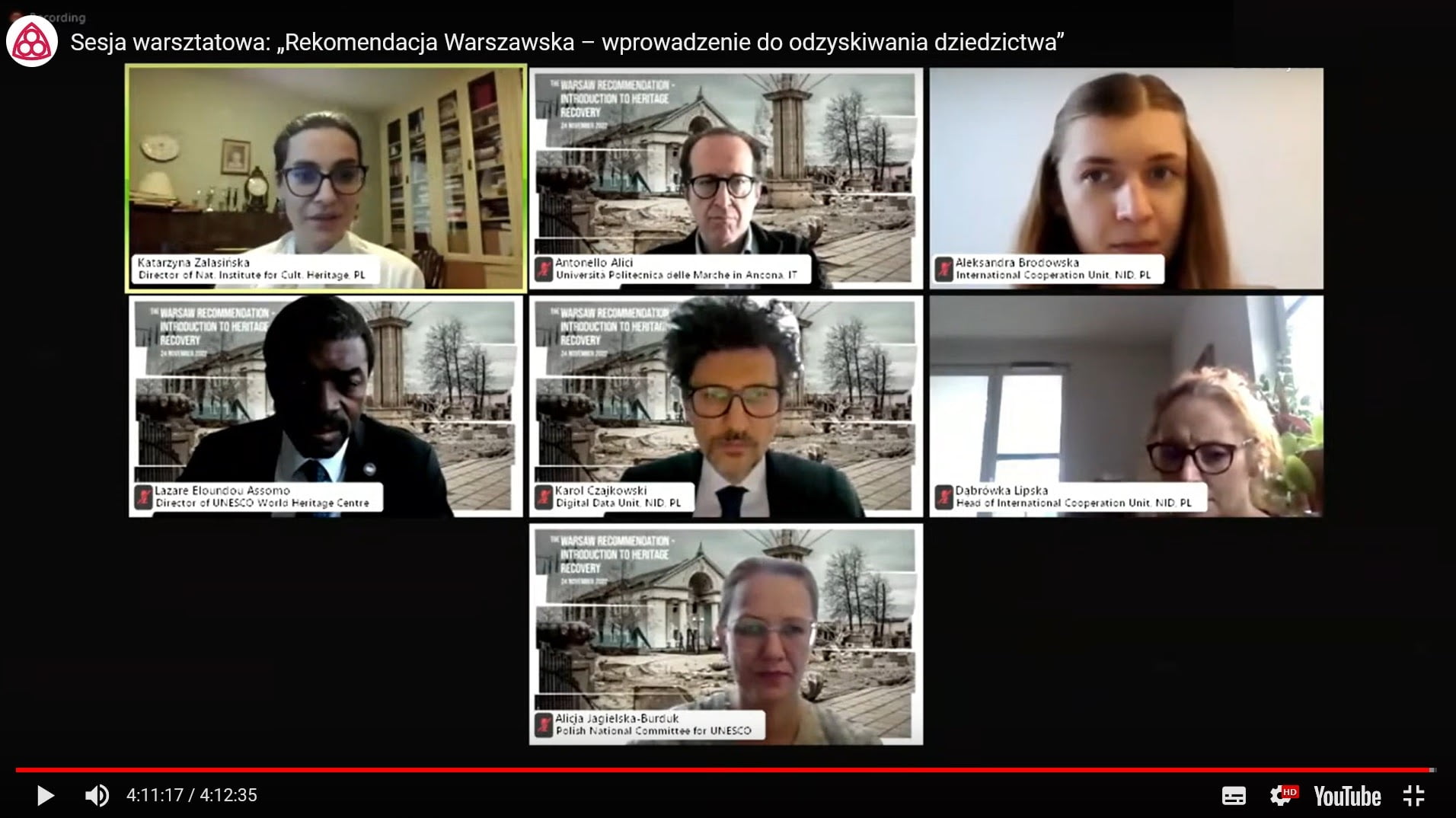On the Ukrainian territory before the war, there were more than 5,000 museums, 65 historical-cultural reserves and some 170,000 monuments, including seven UNESCO World Heritage sites. During the nine months of the war, more than 800 incidents of destruction by Russian troops on Ukraine’s cultural heritage were documented. In this regard, on 24 November, the National Institute of Cultural Heritage, in cooperation with the UNESCO World Heritage Centre and ICCROM, organised an online workshop session “The Warsaw Recommendation – Introduction to Heritage Recovery”.
The aim of the Russian military action is to destroy Ukrainian memory and identity by attacking historical sites and cultural institutions. The destruction of each site means the irreversible loss of an essential component of European cultural heritage.
– Attacks on cultural heritage sites or the looting of Ukrainian museum collections constitute a violation of international laws, including the Hague Convention for the Protection of Cultural Property in the Event of Armed Conflict (1954, 1999) and the 1970 Convention on the Means of Prohibiting and Preventing the Illicit Import, Export, and Transfer of Ownership of Cultural Property. Today, as never before, Ukrainians and the cultural heritage located in Ukraine need our support and assistance. This requires the commitment and strong support of the international community,”
– stressed Dr. Katarzyna Zalasińska, Director of the National Institute of Cultural Heritage.
The scale of the destruction of Mariupol or Kharkiv is comparable to that of Warsaw or Gdansk in 1945. Using the Polish experience of post-war reconstruction of the country and the Warsaw Recommendation, developed in 2018. Warsaw Recommendation, the National Institute of Cultural Heritage, in cooperation with the UNESCO World Heritage Centre and ICCROM, organised the workshop session.
The speakers’ words showed that the Warsaw Recommendation is a set of universal principles that work in different conditions. The speakers unanimously stressed that the reconstruction process requires time and consideration. It should be in line with both social expectations and the principles of cultural reconstruction and restoration, as well as subject to current sustainable development standards.
– Today’s meeting has shown us that the Warsaw Recommendation on the Restoration and Reconstruction of Cultural Heritage has not only not become a dead document but is gaining significance with time. That is why our response to the war experience in Ukraine is: we must jointly address the destruction of cultural heritage, secure cultural sites from targeted attacks, and place culture at the centre of the debate on sustainable development,”
– said Director Zalasińska.
The Director of the UNESCO World Heritage Centre, Lazare Eloundou Assomo, who attended the meeting, recalled Poland’s war experience and the difficult process of rebuilding war losses, including historical monuments. He also appreciated our country’s commitment to saving world heritage.
I will never forget the role played by experts from Poland in preserving cultural heritage in Syria and many other places. And this is also happening today. Poland is an example of initiative and support for the preservation of cultural heritage in Ukraine,”
– said Lazare Eloundou Assomo.
In the Warsaw session the speeches were delivered by:
- Krista Pikkat, Director of Culture and Emergencies, Culture Sector, UNESCO;
- Eugene Jo, Programme Manager, World Heritage Leadership, ICCROM;
- Rohit Jigyasu, Project Manager, Urban Heritage, Climate Change & Disaster Risk Management, ICCROM;
- prof. Antonello Alici, Università Politecnica delle Marche in Ancona;
- Dąbrówka Lipska, National Institute of Cultural Heritage;
- Aleksandra Brodowska, National Institute of Cultural Heritage;
- Karol Czajkowski, National Institute of Cultural Heritage.
Despite the difficult situation and the continued lack of electricity in Kyiv, Kateryna Chuyeva, Vice Minister of Culture and Social Policy, also joined the participants in the workshop session.
More than 200 listeners attended, including those from Poland, Ukraine, Finland, Lithuania, Slovenia, the Netherlands, Spain and Belgium.
A full recording of the event is available on the National Heritage Institute’s YouTube channel.

